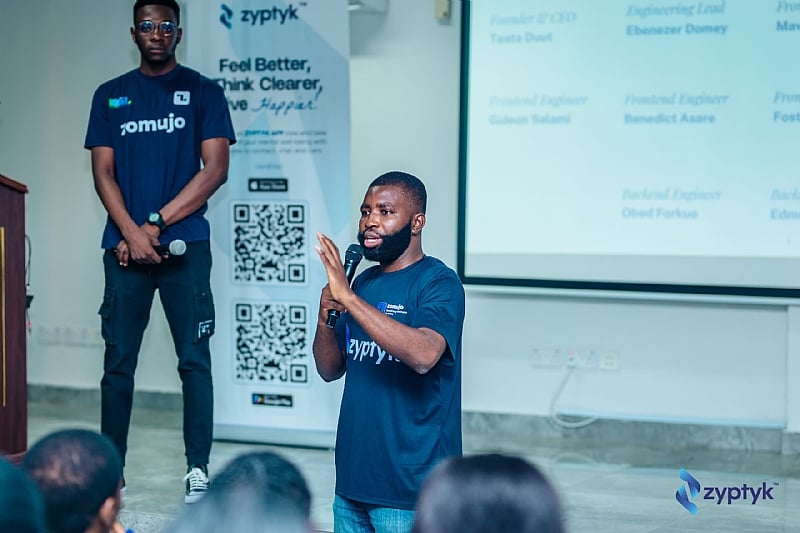Zomujo, a non-profit organization, has partnered with Zyptyk App and the KGL Foundation to conduct a Free Peer Counsellors Training Session aimed at empowering 300 volunteers to champion mental health awareness in Ghana. This initiative took place at the University of Ghana and sought to equip participants with vital skills that address the increasing demand for mental health support in the country. Dr. Teata Duut, the Executive Director of Zomujo, highlighted that these Peer Counsellors would be instrumental in providing essential online and offline support to individuals experiencing mental health challenges. By leveraging their cultural competence and empathetic skills, these volunteers are expected to foster trust with community members and extend much-needed professional support based on active listening and understanding.
Dr. Duut’s drive to establish Zomujo was deeply personal; he recounted the heart-wrenching experience of losing a friend to suicide during his medical school days. This tragedy galvanized him to create a platform that would render mental health support not just accessible but also affordable for all Ghanaians. He emphasized the importance of early intervention in mental health, encouraging young people in particular to prioritize their mental well-being and seek out professional help whenever necessary. Further, Dr. Duut elucidated on Zomujo’s collaborative efforts with universities and rural communities, reinforcing the organization’s mission to make mental health a fundamental concern on a national scale.
Technology’s role in enhancing mental health accessibility was another focal point of Dr. Duut’s address. He introduced the Zyptyk App, which has been designed to provide users with a wide array of resources, including direct access to professional mental health support, peer counseling, and various mental health tools. In addition to the app, Zomujo has established a toll-free hotline, 0800-120-120, available 24/7 to ensure that all Ghanaians, regardless of their location or financial constraints, can access mental health professionals. This initiative aims to bridge the gap in mental health care and support for individuals who may have difficulty accessing traditional services due to stigma or logistical challenges.
Dr. Edward Appah, the Acting Technical Director at the Mental Health Authority, spoke to the significance of reinforcing mental health support systems within Ghana. Speaking on behalf of Dr. Pinaman Appau, the CEO of the Mental Health Authority, Dr. Appah recognized the significant strides made over the last decade. These include integrating mental health services in hospitals and establishing psychiatric wards across various healthcare facilities. However, he pointed out that despite these improvements, there remains a pressing need for continued efforts by non-governmental organizations (NGOs), corporate entities, and educational institutions to uplift mental well-being, particularly in workplaces and schools.
Dr. Appah stressed the paramount importance of training Peer Counsellors as first-line responders, focusing on building trust and ensuring confidentiality in mental health support systems. He expressed concerns over rising societal challenges such as academic pressures and harassment within educational environments, all of which necessitate the availability of accessible and confidential mental health services. This supportive structure is vital in encouraging people to seek help, especially students who may feel overwhelmed by academic demands.
Finally, both Dr. Duut and Dr. Appah conveyed an optimistic outlook regarding Ghana’s capacity to establish comprehensive mental health services across all levels of care. They urged the youth and citizens alike to emphasize mental health and its significance in their lives. They called for cooperation from various sectors to foster an environment where mental health support is stigmatized less and becomes an intrinsic part of the societal framework, ultimately working towards a healthier and more supportive community for all individuals seeking mental health care.














